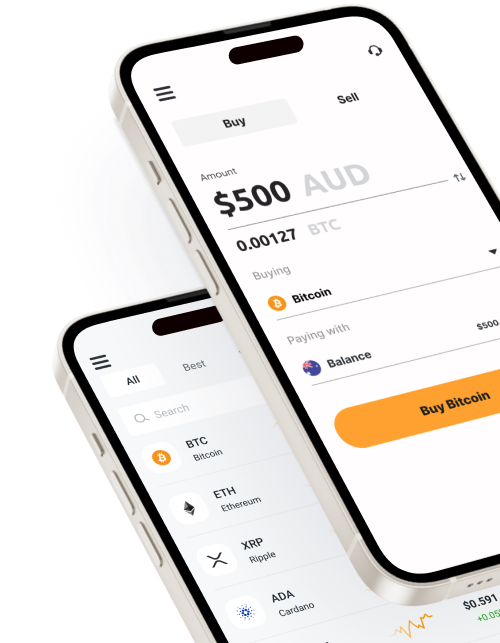
If you’ve been following the Bitcoin scaling efforts lately, you already know that the Bitcoin blockchain forked on August 1, giving birth to a new currency called Bitcoin Cash (BCH). The event was surrounded by quite a bit of uncertainty over how well the new currency would perform. Would it flatline for lack of support? How would it hold value compared to Bitcoin?
Well, that uncertainty remains: The currency came out of the gate valued at around $300, surged to over $720 [at one point on August 2], and at the time of writing [August 3, 4 am AEST] was trading at about $400.
But what exactly does the birth of this new currency mean?
Those behind the Bitcoin Cash launch called it a “hard fork” of Bitcoin. Others have since questioned whether it is in fact a fork, or whether it would more accurately be considered an altcoin.
“There are many misconceptions about Bitcoin Cash and what it represents. To be clear, Bitcoin is not forking. Rather, some developers have created a new digital currency and formulated an effective means of distributing it, by giving it to everyone with an existing Bitcoin balance,” Dash Core CEO Ryan Taylor said after the launch in a statement.
At its most basic definition, a fork occurs when two or more sets of miners in a blockchain network follow conflicting sets of rules for maintaining the public ledger. This results in either a temporary or a permanent split of the chain.
The Bitcoin split is permanent, thus we have a new coin. Miners supporting Bitcoin Cash are enforcing rules the rest of the Bitcoin network does not recognize. The most important difference is that Bitcoin Cash increases the traditional block size of Bitcoin from 1MB to 8MB.
On a technical level, therefore, the Bitcoin Cash launch would be considered a fork. But many view it as an altcoin, because they believe those behind the launch used the scaling disagreements as a cover to launch a new coin they had already planned to create.
Indeed, some of the most successful altcoins were forks of Bitcoin. Litecoin is a case in point. (Litecoin currently trades at around $42, by the way, compared to Bitcoin’s $2,710).
Taylor points out that, were it not for the lack of an effective governance structure to resolve network issues, there would be no Bitcoin Cash. Luis Cuende, the co-founder and project lead of Aragon, agrees and believes the fork is a stress test on Bitcoin’s governance. “Forks are a way to vote, to reclaim independence, and I really look forward to seeing how further development will continue and how the community will react,” he said in a statement.
Those behind the new altcoin believe scaling solutions must necessarily include an increase in the block size. In particular, they believed Segregated Witness (SegWit), which the larger Bitcoin community opted to adopt last month, would hinder Bitcoin’s ability to function according to the chain’s original vision of a “peer-to-peer electronic cash” and “sound money.”
When it became apparent that the community would adopt SegWit — which marginally improves block sizes — many thought contingency plans, such as Bitcoin Cash, put in place by several Bitcoin mining collectives, such as Bitmain, would no longer be necessary.
But on July 22, ViaBTC, an exchange owned by Bitmain and Bitcoin.com, surprised the community by announcing they would proceed with Bitcoin Cash. And yesterday they activated the Bitcoin ABC miners they had developed to increase the block size, officially launching the new currency.
Testing the Market
Bitcoin users now own both Bitcoin and Bitcoin Cash following the fork. However, this is only if they use either a wallet they control, meaning they own their private keys, or one controlled by a third-party service provider that supports both currencies.
Node40 CEO Perry Woodin said in a statement yesterday that he doesn’t believe many people will have much interest in the new coin: “People who are going to benefit from Bitcoin Cash are the ones who see it as free money, so they can then invest in something else. It’s going to be a race to see who can sell it the fastest.”
Still, the first day of trading has showed there’s some interest in the currency.
The creation of Bitcoin Cash is another turn in the long contentious road Bitcoin has taken in community attempts to scale. And even if Bitcoin Cash isn’t able to retain value at its current level, it could still serve to bring peace to the Bitcoin community, Cuende said. “The people that were actively trying to stop development on Bitcoin and centralize it, will now have their own chain to do whatever they want with it. I think this will positively impact Bitcoin.”
And ZenCash co-founder Rob Viglione believes there is room for both Bitcoin and Bitcoin Cash to flourish. “We’ll see experimentation along two distinct preference clusters. Rather than forcing one way or another, we can see how each idea unfolds in real life. This is the major advantage of cryptocurrency markets: Instead of bickering over theory and assumptions, we can just bring ideas to market and see how they perform,” he said.
The bottom line: At this time, Bitcoin Cash is a hard fork of Bitcoin that is supported by only a minority of users. Over time, it will be treated as an altcoin and the market will determine its value.
The story originally appeared on VentureBeat.
Note: Bitcoin.com.au is only processing BTC at this point in time.



